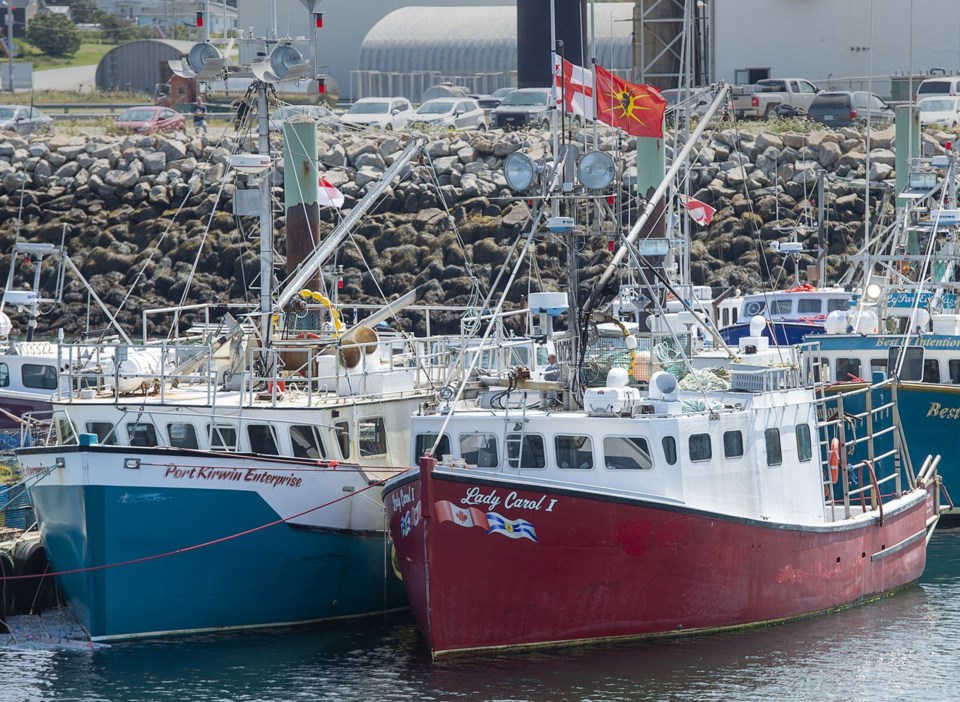HALIFAX — A Mi’kmaq band has dropped a legal case alleging Ottawa was violating its treaty rights in the lobster fishery, after hopes were raised of a historic deal.
Last December, the lawyer for Sipekne'katik First Nation told Nova Scotia Supreme Court Justice John Keith that discussions with Ottawa to settle the matter were "moving to a conclusion."
Keith gave the parties until June 16 to finish the mediation, but said at that point the case would carry on before the courts.
However, a letter to the courts sent June 6 by Sipekne'katik's lawyer Nathan Sutherland dropped the case without any further explanation.
Neither side has provided an update on the status of negotiations for a new agreement.
Chief Michelle Glasgow, the leader of the Indigenous community about 70 kilometres north of Halifax, didn't reply to a request for comment.
Band members had argued their “moderate livelihood” lobster harvest outside of the regular season is permitted by a 1999 Supreme Court of Canada decision, while non-Indigenous commercial fishers have contended it threatens stocks and fails to recognize how the courts have maintained Ottawa’s right to regulate.
The original lawsuit was launched by the band in 2021, seeking a declaration that current federal regulations infringe on its treaty right to fish.
The Unified Fisheries Conservation Alliance, a group that represents commercial fishers, said in a news release Monday that the discontinuing of the case is a “major victory” for its members.
“It is an acknowledgement by Chief (Michelle) Glasgow and Sipekne’katik First Nation that the rights to the illegal out-of-season lobster fishing ... are not a treaty protected right, it is poaching, plain and simple”, said Colin Sproul, president of the group.
Meanwhile, the group said they will be pursuing separate legal action, filed in August 2024, asking the provincial Supreme Court to determine the rules and limits to be applied to Sipekne’katik First Nation’s fishery under the Marshall decision.
The Supreme Court of Canada’s 1999 Marshall decision said the Mi’kmaq, Maliseet and Passamaquoddy bands in Eastern Canada could hunt, fish and gather to earn a “moderate livelihood,” though the court followed up with a clarification saying the treaty right was subject to federal regulation to ensure conservation.
In September 2020, the Sipekne’katik First Nation issued five lobster licences to its members, saying they could trap and sell their catch outside the federally regulated season.
In the months that followed there were confrontations on the water, rowdy protests and riots at two lobster pounds, one of which was razed by arson.
According to a letter the band's lawyers sent to the court last December, seven federal officials — including the regional director of the Fisheries Department — attended weekly mediation talks in the legal case, with 10 representatives of the First Nation participating.
“The progress made to date and moving forward from our 25 years of impasse is immeasurable,” wrote Ronald Pink, the lawyer at the time, in the 2024 letter to the judge.
The talks were also described by lawyers last December as being extensive, with former senator Dan Christmas and retired federal mediator Barney Dobbin guiding discussions.
This report by The Canadian Press was first published June 9, 2025.
Michael Tutton, The Canadian Press



